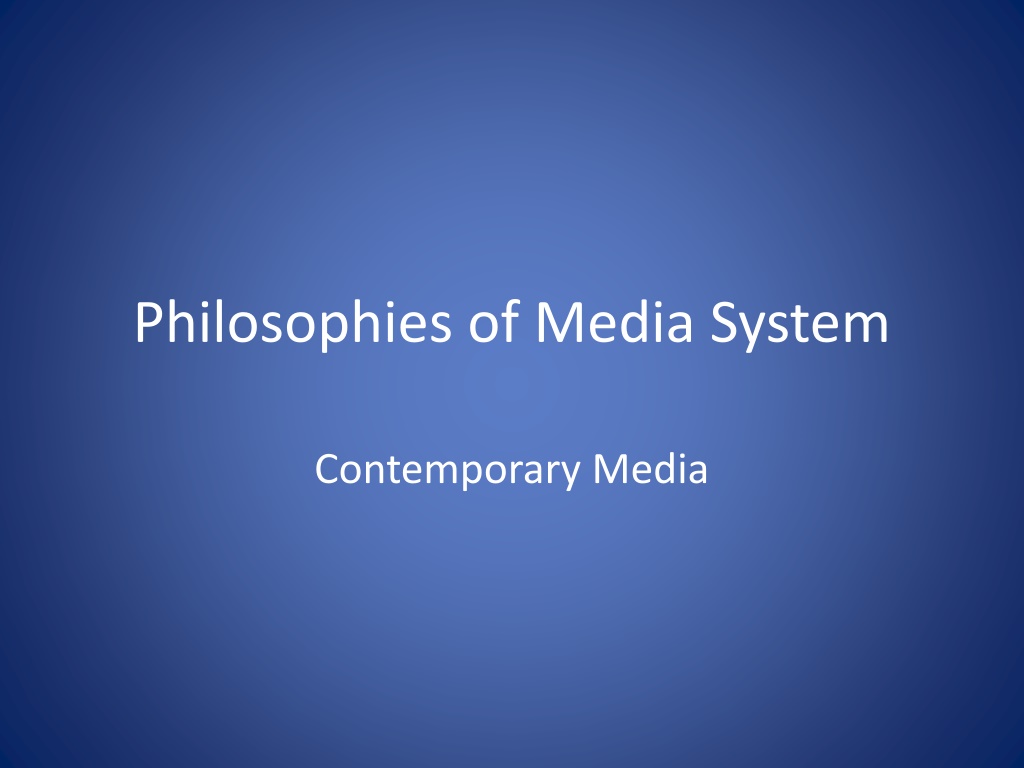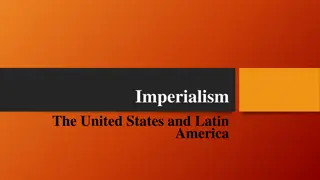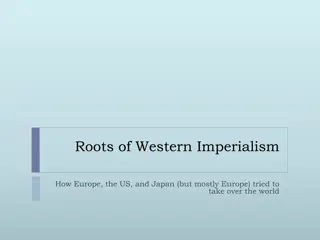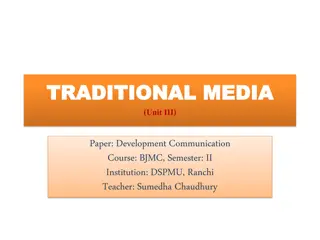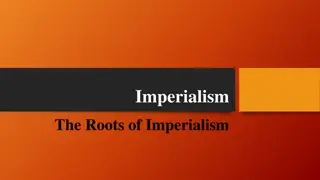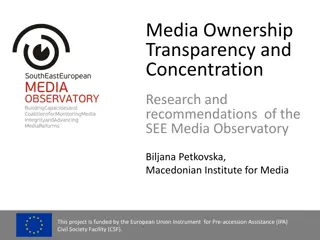Understanding Media Imperialism and Cultural Influence
Explore the concepts of cultural imperialism, media imperialism, and theories of communication in contemporary media systems. Cultural imperialism involves the influence of powerful cultures on less dominant ones, impacting cultural identity. Media imperialism refers to the one-way flow of information to developing nations, imposing Western values. Theories of communication analyze the effects of mass media as a business tool, educator, watchdog, and entertainer, based on various perspectives.
- Media Imperialism
- Cultural Influence
- Theories of Communication
- Contemporary Media
- Cultural Imperialism
Download Presentation

Please find below an Image/Link to download the presentation.
The content on the website is provided AS IS for your information and personal use only. It may not be sold, licensed, or shared on other websites without obtaining consent from the author. Download presentation by click this link. If you encounter any issues during the download, it is possible that the publisher has removed the file from their server.
E N D
Presentation Transcript
Philosophies of Media System Contemporary Media
Philosophies of media system Cultural imperialism Media imperialism Theories of communication Concept of ICTs
Cultural imperialism culture of a large and powerful country, organization, etc. having a great influence on another less powerful country. According to the theory of cultural imperialism, less economically prominent cultures essentially import culture from wealthier countries
Cultural imperialism via the global transmission of media. As one society exerts cultural influence over another, the latter society adopts its customs, philosophies, worldviews and general ways of life. Under the imposition of another culture, the lesser culture is thought to lose some of its own cultural identity in the process.
Media Imperialism The one-way flow of information to developing nations. The imposition of western culture and values on developing nations.
Media imperialism media imperialism, refers to a situation in which a culture is chiefly exposed to the media interests of another society rather than their own the affected country or culture's media is not exported in turn to the influencing country in any significant fashion, making media and cultural imperialism a strictly one-way street.
Theories of Communication The study of communication and mass media has led to the formulation of many theories Communication theories help in determining the affects of mass media as a business opportunity, an educator, a watchdog, and an entertainer
Cont structural and functional theories believe that social structures are real and function in ways that can be observed objectively; cognitive and behavioral theories tend to focus on psychology of individuals interactions theories view social life as a process of interaction;
Cont interpretive theories uncover the ways people actually understand their own experience critical theories are concerned with the conflict of interests in society and the way communication perpetuates domination of one group over another .
Information and communications technology ICT (information and communications technology - or technologies) is an umbrella term that includes any communication device or application, encompassing: radio, television, cellular phones, computer and network hardware and software, satellite systems and so on, as well as the various services and applications associated with them, such as videoconferencing and distance learning.
Role of ICTs ICTs are often spoken of in a particular context, such as ICTs in education, health care, or libraries. Information and Communication Technologies are significant in current era of communication. ICTs have been widely used to produce as well as disseminate information.
Cont According to the European Commission, the importance of ICTs lies less in the technology itself than in its ability to create greater access to information and communication in underserved populations.
